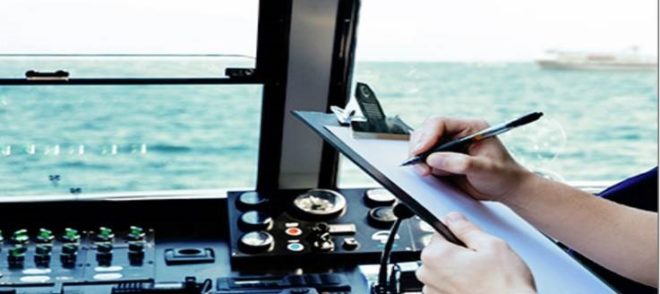
We are pleased to present the sixteenth issue of the Annual Report on Port State Control in the Black Sea region which is published under the auspices of the Port State Control Committee of the Black Sea MOU. Port State Control is of particular importance to the BS MOU member Authorities due to the role of shipping in region’s trade, the sensitivity of the Black Sea basin and its coastline to environmental damage. PSC inspections are conducted to ensure that foreign ships visiting the Black Sea ports are seaworthy, do not pose a pollution risk, provide a healthy and safe environment and comply with relevant international regulations and within the scope of the member Authorities’ national governing laws and regulations.
At the 17th meeting of the Port State Control Committee in Sochi, Russian Federation, April 2016, the BS MOU decided to introduce a new inspection scheme incorporation of expanded inspection to initial and more detailed inspection from 1st January 2017 to harmonize further its inspection scheme with the Paris MOU, to the highest level.
This PSC Annual report covers the period between 1st January and 31st December 2016. During this period, the BS MOU member Authorities conducted a total of 5066 initial inspections, representing 1.4 per cent increase as compared with 4,997 initial inspections in 2015. The regional inspection rate is 69.80% which is 0
.22 percent increase as compared with 2015. A total of 229 detentions were warranted to ships found with serious deficiencies.
This represents a detention percentage of 4.52% which is 5.05 per cent increase as compared with 218 detentions in 2015. During 2016 a total of 18,266 deficiencies were recorded. The average number of deficiencies per inspection was 3.61; resulting in a 0.01 deficiency point decrease.
The most significant number of operational deficiencies found in 2016 was in the area of safety of navigation, lifesaving appliances followed by fire safety measures and health protection, medical care, social security making up 50.1 per cent of the total deficiencies found.
International Safety Management (ISM) related issues accounted for 8.27 per cent of all detainable deficiencies in the 2016 reporting period which is 1.0 per cent increase compared with 2015. Thereby this area remains a significant concern and the BS MOU continues to scrutinize vessels coming into region for weaknesses in their Safety Management Systems.
In further promoting safety and environment protection, Concentrated Inspection Campaign (CIC)s are conducted in conjunction with the Paris and Tokyo Memorandas. Between 1st September 2016 and 30th November 2016, a CIC was carried out with respect to the Cargo Securing Arrangements with Tokyo MOU, IO MOU and Viña del Mar Agreement.
Through the launching new inspection scheme the BS MOU will further increase the pressure on the substandard ships to encourage them to improve their performance or to force them to leave the region.
Inspection Data by Recognized Organization
The majority of ships inspected are in class with the Nippon Kaiji Kyokai 1120 (15.1%), Lloyd’s Register 864 (11.63%), Bureau Veritas 833 (11.2%) and followed by, DNV GL AS 796 (10.7%) and Russian Maritime Register of Shipping 586 (7.89%) inspections.
Figure 4 on page 10 of the Black Sea MOU-Annual Report (2016) presents ratio of the share of inspections to the share of RO related detentions and share of RO related detainable deficiencies.
International Maritime Register (IMR), followed by Mediterranean Shipping Register (MSR), MACOSNAR Corporation and International Register of Shipping (IRS) have high share of RO related detentions and high share of RO related detainable deficiencies compare to the share of inspections with RO related detentions and deficiencies.
(*) Refer to table 8 on page 16 of the Black Sea MOU-Annual Report (2016) for the Inspection Data by Recognized Organizations (Number of Inspections>10). https://icsclass.org/wp-content/uploads/2017/06/Table-8-Inspection-Data-by-Recognized-Organizations.pdf
Black Sea MOU-Annual Report (2016) is available here: http://www.bsmou.org/category/docs/annual-reports/
Source: Black Sea MOU